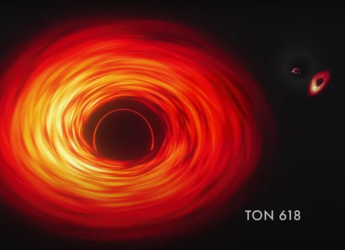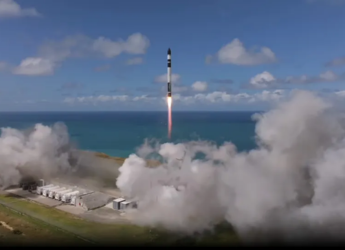- Home
- Science
- Science News
- NASA’s Expedition 73: Astronauts Study Brain, Balance, and Immunity on ISS
NASA’s Expedition 73: Astronauts Study Brain, Balance, and Immunity on ISS
Astronauts on the ISS are researching how microgravity affects balance, immunity, muscles, and cognition.

Photo Credit: NASA
ISS Expedition 73 studies weightlessness effects on human brain, body health
Astronauts on the International Space Station (ISS) are taking part in Expedition 73 to learn how weightlessness affects the human brain and body. NASA reports that “maintaining sense of balance and protecting immunity in space were the top human research experiments aboard the ISS” during recent crew activities. These studies examine how the brain and body adapt in microgravity – research that could help future space explorers and benefit health on Earth. As NASA prepares for future long-duration missions, understanding these biological changes is critical for keeping astronauts healthy on longer journeys in space.
Monitoring the Body for Long-Term Health
According to NASA, astronauts strap into harnesses and run on the station's treadmills — one crew member jogged on the Zvezda module's treadmill during a fitness check. They also use resistive exercise machines in the Tranquility module that simulate weightlifting to measure muscle and bone stress in space. These workouts help prevent the muscle and bone loss that can occur during long missions.
The crew regularly takes cognitive tests — a short computer quiz checks whether spaceflight is affecting reasoning, decision-making and visual tracking skills. They also practiced emergency procedures: one day the crew did cardiopulmonary resuscitation (CPR) drills, deployed medical kits and reviewed communication plans. These exercises help ensure the team stays prepared for any situation.
Tracking Brain and Immune System Changes
To study balance, flight engineers Jonny Kim and Zena Cardman worked in the station's Columbus lab to probe the vestibular system — the inner-ear and brain network that controls balance and spatial orientation. Cardman wore virtual-reality goggles displaying moving images while Kim ran the experiment computer.
This setup let the team see how Cardman perceives up and down without gravity. Such tests give researchers clues about how the brain adapts to life in orbit. Flight Engineer Kimiya Yui ran an Immunity Assay experiment, which checks if spaceflight changes cellular immunity. He collected stored blood and saliva samples, spun them in a space-lab centrifuge, and froze them for later analysis. Back on Earth, scientists will test these samples to see if long stays in orbit affect infection-fighting cells.
Get your daily dose of tech news, reviews, and insights, in under 80 characters on Gadgets 360 Turbo. Connect with fellow tech lovers on our Forum. Follow us on X, Facebook, WhatsApp, Threads and Google News for instant updates. Catch all the action on our YouTube channel.
Related Stories
- Samsung Galaxy Unpacked 2025
- ChatGPT
- Redmi Note 14 Pro+
- iPhone 16
- Apple Vision Pro
- Oneplus 12
- OnePlus Nord CE 3 Lite 5G
- iPhone 13
- Xiaomi 14 Pro
- Oppo Find N3
- Tecno Spark Go (2023)
- Realme V30
- Best Phones Under 25000
- Samsung Galaxy S24 Series
- Cryptocurrency
- iQoo 12
- Samsung Galaxy S24 Ultra
- Giottus
- Samsung Galaxy Z Flip 5
- Apple 'Scary Fast'
- Housefull 5
- GoPro Hero 12 Black Review
- Invincible Season 2
- JioGlass
- HD Ready TV
- Laptop Under 50000
- Smartwatch Under 10000
- Latest Mobile Phones
- Compare Phones
- Realme 16 5G
- Redmi Turbo 5
- Redmi Turbo 5 Max
- Moto G77
- Moto G67
- Realme P4 Power 5G
- Vivo X200T
- Realme Neo 8
- HP HyperX Omen 15
- Acer Chromebook 311 (2026)
- Lenovo Idea Tab Plus
- Realme Pad 3
- HMD Watch P1
- HMD Watch X1
- Haier H5E Series
- Acerpure Nitro Z Series 100-inch QLED TV
- Asus ROG Ally
- Nintendo Switch Lite
- Haier 1.6 Ton 5 Star Inverter Split AC (HSU19G-MZAID5BN-INV)
- Haier 1.6 Ton 5 Star Inverter Split AC (HSU19G-MZAIM5BN-INV)

















